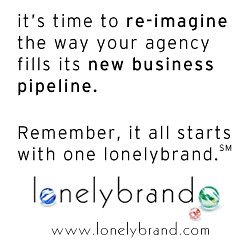 The reports of The House Judiciary Committee's letter to Facebook are, for the most part, unsatisfying. Rep. John Conyers Jr. (D-Mich.), chairman of the House Judiciary Committee, has been quoted as saying, “Companies such as Facebook and Google provide innovative services that enrich and expand the constantly evolving Internet. I want to ensure that privacy concerns are as paramount as creativity to these and all Internet companies, and I look forward to hearing about ways they can ensure this is the case.”
The reports of The House Judiciary Committee's letter to Facebook are, for the most part, unsatisfying. Rep. John Conyers Jr. (D-Mich.), chairman of the House Judiciary Committee, has been quoted as saying, “Companies such as Facebook and Google provide innovative services that enrich and expand the constantly evolving Internet. I want to ensure that privacy concerns are as paramount as creativity to these and all Internet companies, and I look forward to hearing about ways they can ensure this is the case.” I want to take a moment and share my thoughts about the bigger picture. No, Facebook isn't in trouble, and it isn't likely that the Committee's inquiry will have any effect on revenue or future plans for deployment of advertising services. As marketers we need to ask ourselves a few questions from a consumer perspective:
Is the temptation to share too great?
The allure of social networking is obvious and indisputable. Sites like Facebook tap into a primal need to communicate, find others like ourselves, and form relationships at a faster pace. It's tribal, and it's human, and in the end we can't really help ourselves.Is our privacy an unfair trade?
Because we can't resist giving up much of our private data to companies like Facebook, we rarely stop to ask ourselves what the value of our personal data really is. It's worth posing the question:Do we really know how much our information is worth?
If the value of our personal data far outweighs the benefits offered by a site like Facebook (from a financial perspective) why aren't we doing more to capitalize on that market - effectively creating a valuation system for our online behaviors. For more on what that might look like, read "Facebook: The Currency of Like". It raises yet another question:Should Facebook be paying users to share their information with advertisers?
In the end, the House Judiciary Committee's letter to Facebook is about fair valuation and compensation for private citizens' data. Though it may be true that people all over the world are voluntarily feeding data to Facebook with the full disclosure in Terms of Service for what may or may not happen to that data, it's also true that most users can't imagine a future where their data is used in a way that becomes undesirable. As Facebook pushes toward bigger profits (and, as I have said many times before, the larger goal of an IPO) there will be a sharp uptick in the number of malcontents.Keep this in mind as you plan your brand's push into social networks. It may be the Wild West today, but there will come a time when things change - be it by privatized hands or government mandates. I, for one, can easily see a future where the dominant social network pays users fractional amounts when their profile data is sold to advertisers; seems fair to me...
How did you interpret the inquiry to Facebook from The House Judiciary Committee, and what do you think will happen next?
Nick Kinports (follow him on Twitter @ADMAVEN) has worked in the interactive technology world for over 9 years, and helps the Fortune 100 identify unmet consumer needs, create ideas to fill those needs, and bring them into market. He currently works at Maddock Douglas.
Nick Kinports (follow him on Twitter @ADMAVEN) has worked in the interactive technology world for over 9 years, and helps the Fortune 100 identify unmet consumer needs, create ideas to fill those needs, and bring them into market. He currently works at Maddock Douglas.
















